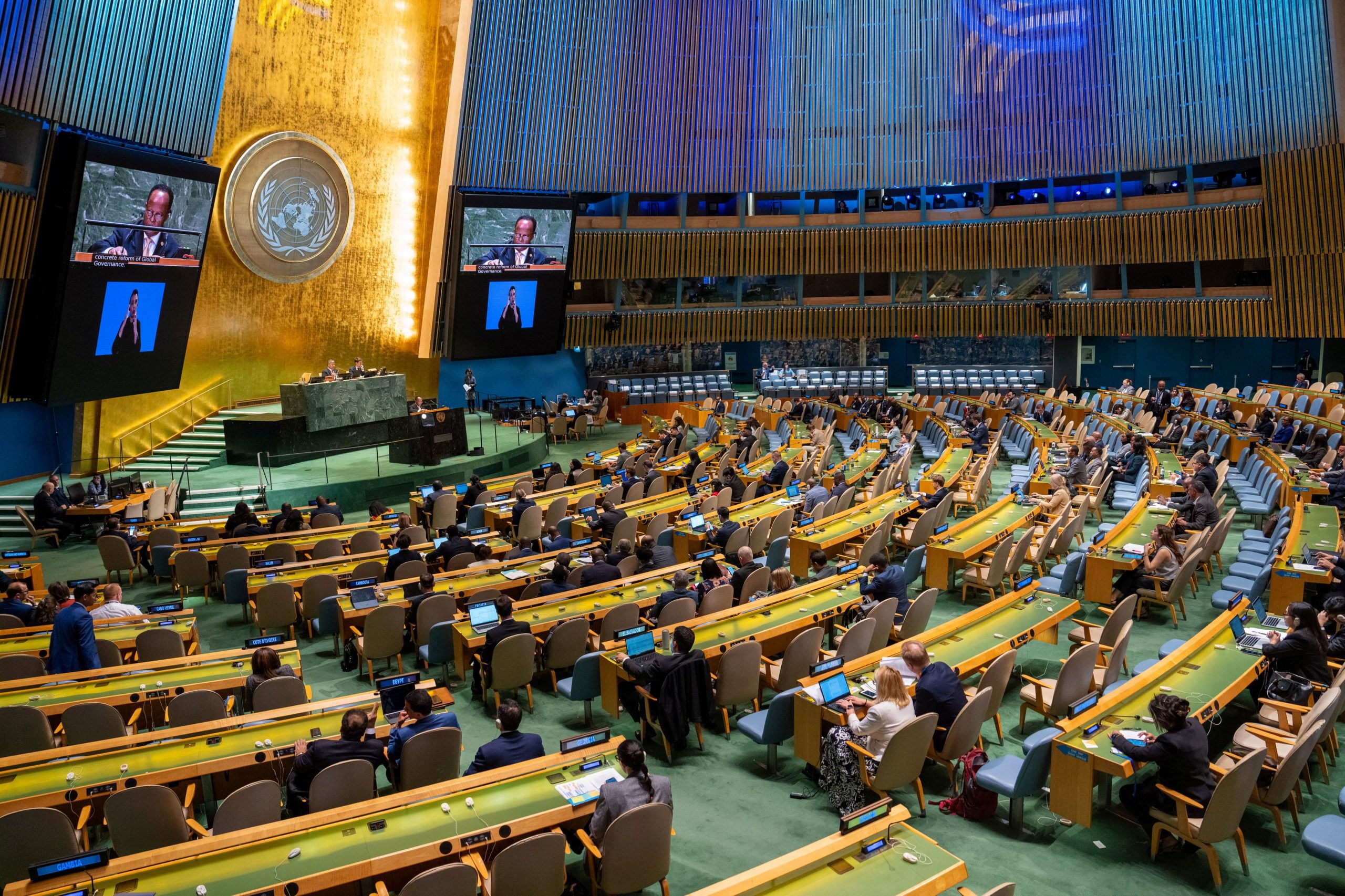On 22 September 2024 the “Pact for the Future” was adopted by the Summit of the Future (SOTF) convened by the United Nations in New York. Its 74 paragraphs and 56 “Actions” address major issues that affect humanity and multilateral cooperation, namely sustainable development and financing for development; international peace and security; science, technology and innovation and digital cooperation; youth and future generations; transforming global governance. In addition to an introductory section / “chapeau”, which reiterates core principles of multilateralism, and five chapters that correspond to the five major issues mentioned above, the UN Pact includes two self-standing annexes, the Global Digital Compact and the Declaration on Future Generations respectively.
It was not a spontaneously conceived text, this Pact for the Future, nor is it expected to save the world upon its adoption, or at any point thereafter in fact. It is a strenuously negotiated document that expresses a broad consensus, at least in rhetoric, on how multilateralism and international affairs should be conducted and what the UN has to offer for dealing with challenges that are shared across borders.
As per standard practice, the outcome of a summit is prepared through painstaking negotiations over several months before the actual summit takes place. The leaders who participate in the summit come to sign what has been previously agreed by their negotiating teams and to make their idealistic declarations for the historical record. Well, occasionally they may have to decide on a couple of issues that remain outstanding from the negotiations. At the Summit of the Future, though, there was only a last-minute addition to the draft Pact proposed by Russia that the Summit participants decided with a large majority not to consider.
Thus the draft Pact was adopted as it had been put before the Summit participants by the UN General Assembly President and his co-facilitators, the Ambassadors of Germany and Namibia to the UN, without any amendment. This duo of former colony and colonizer worked harmoniously together to incorporate into the Pact a broad range of issues that concern individual or groups of UN member states and to respond to their amendment requests. They also invited and got contributions from civil society organisations and other non-state actors, including businesses.
I followed the text of the Pact in its various iterations over several months, starting from the “Zero Draft” and all the way to the fifth and final revision. As expected, the long negotiations and inevitable compromises led to a Christmas Tree-like text, with something for everybody, in terms of general statements of principle and repetition of past (unmet) promises. The Pact’s “Actions” have hardly anything actionable that would change the world – they include no timelines nor commit resources, and occasionally include contradictory approaches on the same issue to please everybody.
Consider, though, the context in which the Pact was negotiated: heightened geopolitical tensions among major powers, a widening East-West divide, wars in the Middle East, Ukraine and Sudan, a Global South that attempts to assert its independence, while climate change is marching on, and more. Under the circumstances, the Pact could have been worse, or even not at all, if the negotiations collapsed in acrimony. So let’s acknowledge that and make the best of what the Pact offers: a positive narrative that re-immerses the world into the spirit of the UN Charter and its paramount objective of conflict resolution by peaceful means, the pursuit of sustainable development that leaves no one behind with a revamped financial system that serves this purpose, women’s empowerment and equal rights for all. Also part of the narrative are the importance of science and bridging the digital divide, steps towards harnessing the potential of AI while reducing the risks associated with it, stewardship of the planet for future generations, and strengthening the legitimacy and effectiveness of the UN organs to achieve the above.
There is a lack of concrete undertakings, though, as mentioned earlier, and that is what needs to be the focus of multilateral work in the months and years ahead. Just the rhetoric will not do. On the contrary, all talk and no deeds lead to further erosion of the credibility and legitimacy of global institutions, at a time when more collective action is needed to end wars, tackle the climate crisis, reduce inequalities and make the economy work for a better future for all.
Georgios Kostakos is co-founder and Executive Director of the Brussels-based Foundation for Global Governance and Sustainability



